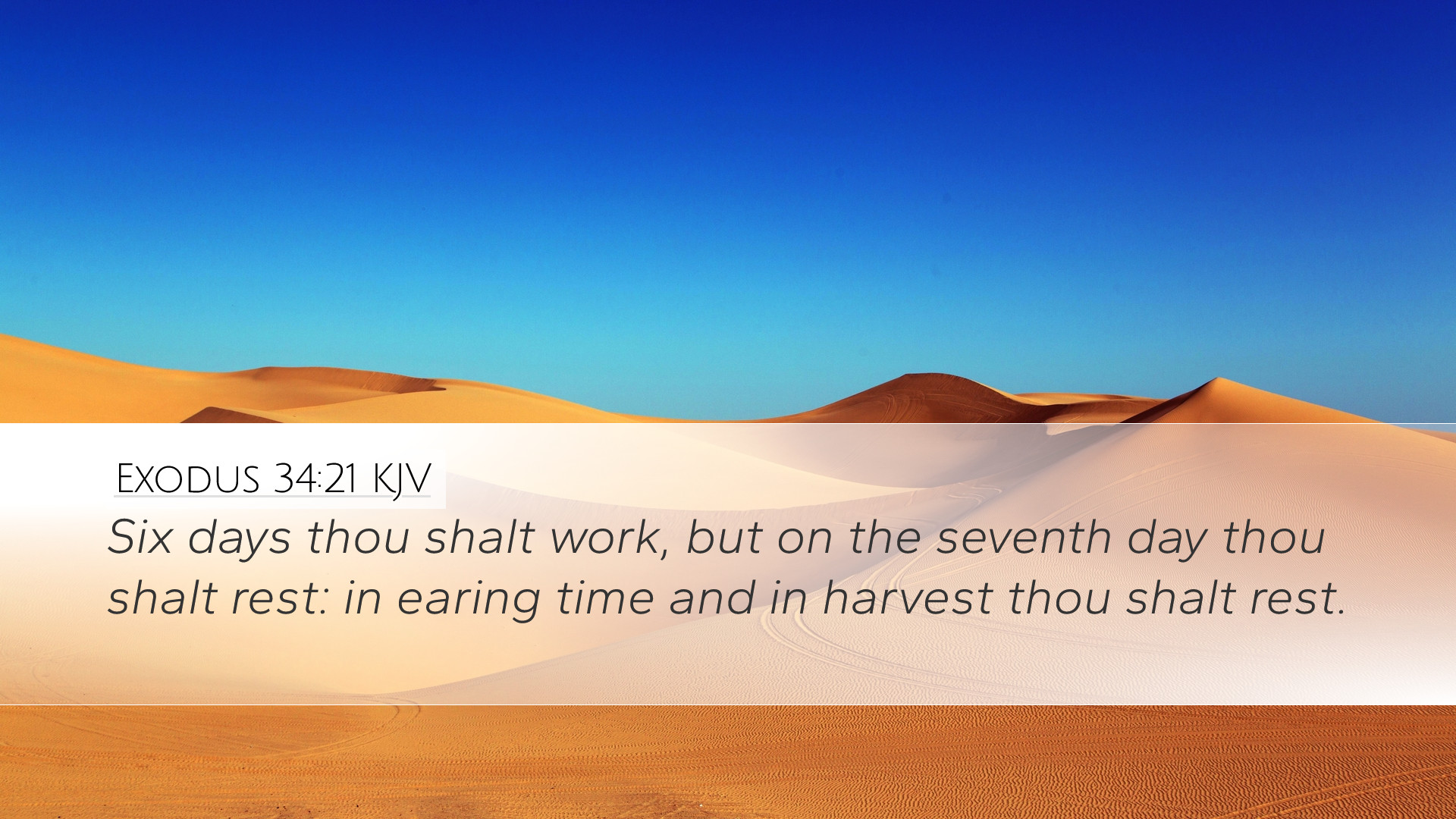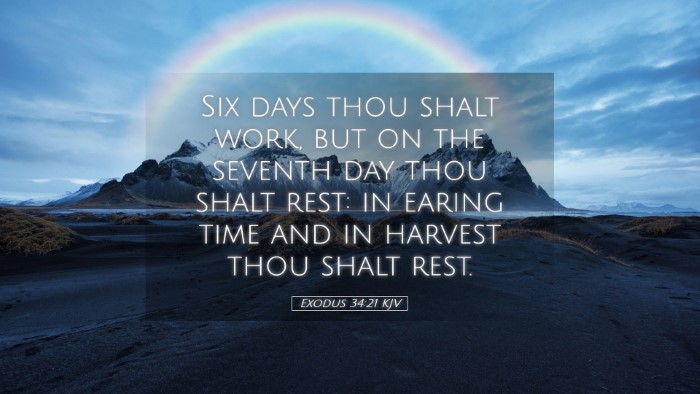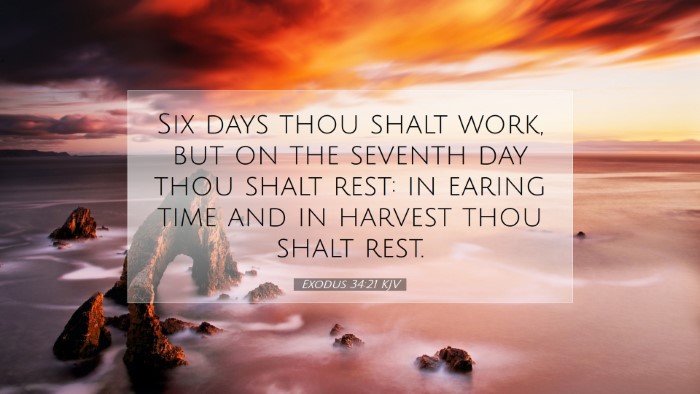Exodus 34:21 Commentary
Verse: "Six days thou shalt work, but on the seventh day thou shalt rest: in plowing time and in harvest thou shalt rest."
Introduction
The commandment in Exodus 34:21 emphasizes the importance of rest and the rhythm of work and leisure instituted by God. This verse, while part of a broader context regarding the covenant and worship, provides essential insights into the nature of labor and divine order in life.
Contextual Analysis
Exodus 34 occurs after the Israelites' transgression with the golden calf. In this chapter, God renews His covenant with them, emphasizing His character and the terms of this relationship. The verses preceding 21 highlight God's attributes, His laws, and the call to fidelity in worship.
Insights from Matthew Henry
Matthew Henry reflects on the essence of the Sabbath rest as a divine ordinance. He notes:
- Creation Order: The work-rest pattern aligns with God's own creation process, suggesting that the rhythm of labor is embedded in the fabric of existence.
- Spiritual Significance: The rest on the Sabbath is not merely physical cessation but a spiritual replenishment, a time to reconnect with God. Henry affirms that this rest helps maintain spiritual vigor amidst the busyness of life.
- Inclusiveness: The command to rest applies universally, including servants and beasts. This highlights God’s compassion towards all of creation, promoting justice and mercy.
Insights from Albert Barnes
Albert Barnes provides a detailed examination of this verse, emphasizing the practical aspects of the command:
- Work Ethic: The balance between work and rest highlights God’s approval of diligent labor. Barnes emphasizes that work is a divine calling and encourages productivity, but it must be complemented by periods of rest.
- Seasonal Context: Acknowledging both plowing time and harvest underscores that rest should be observed even during the busiest seasons. This serves to remind believers that God's principles supersede immediate needs or societal expectations.
- Application for Today: Barnes challenges present-day readers to consider how they integrate rest into their own lives, especially amidst demands that often seek to minimize or overlook the necessity of a Sabbath.
Insights from Adam Clarke
Adam Clarke adds a more detailed pastoral approach, delving into the theological implications of this directive:
- Divine Law: Clarke suggests that the command is emblematic of God’s authority over time and labor, reinforcing that He designs the pace of life for human flourishing.
- Rest as Worship: The act of resting becomes an act of worship, providing believers the chance to refocus on God’s sovereignty and grace. Clarke notes that this weekly rhythm can shape a believer's worldview and spiritual health.
- Historical Context: He also highlights how this command would have been countercultural in a society driven by incessant labor, thereby legitimizing the principle of rest against prevailing norms.
Theological Reflections
The theological implications of Exodus 34:21 reverberate through both Old and New Testaments, highlighting several key areas for reflection:
- Creation: The pattern of rest is grounded in the Creator’s rhythm during creation, establishing a precedent for humanity to follow.
- Covenantal Relationship: This command reflects God’s desire for intimacy with His people, where resting becomes a relational act, enhancing dependency on divine provision.
- Prefiguration of Christ: Many theological traditions interpret rest as a precursor to the rest found in Christ, who liberates believers from their burdens.
Practical Application for Pastors and Leaders
Exodus 34:21 carries profound implications for church leadership, pastoral care, and personal spiritual formation:
- Encouraging Sabbath Observance: Pastors should prioritize teaching about the theology of rest and its necessity in the life of believers, moving beyond legalistic interpretations to fostering genuine rest in Christ.
- Modeling Work-Rest Balance: Leaders should exemplify a healthy balance of work and rest, showing congregants the importance of taking time for spiritual replenishment.
- Creating Safe Spaces: Churches can create environments that promote Sabbath practices, helping members find peace in God's presence beyond the busyness of ministry.
Conclusion
In conclusion, Exodus 34:21 stands as a reminder of God’s intentional design for humanity's work and rest. The insights drawn from Matthew Henry, Albert Barnes, and Adam Clarke collectively enrich our understanding of this command. It challenges contemporary Christians to reconsider how they engage with their work and their need for restoration in their spiritual lives. As believers honor this divine principle, they align themselves with God's created order, finding strength, purpose, and renewal in the rhythm of work and rest.


